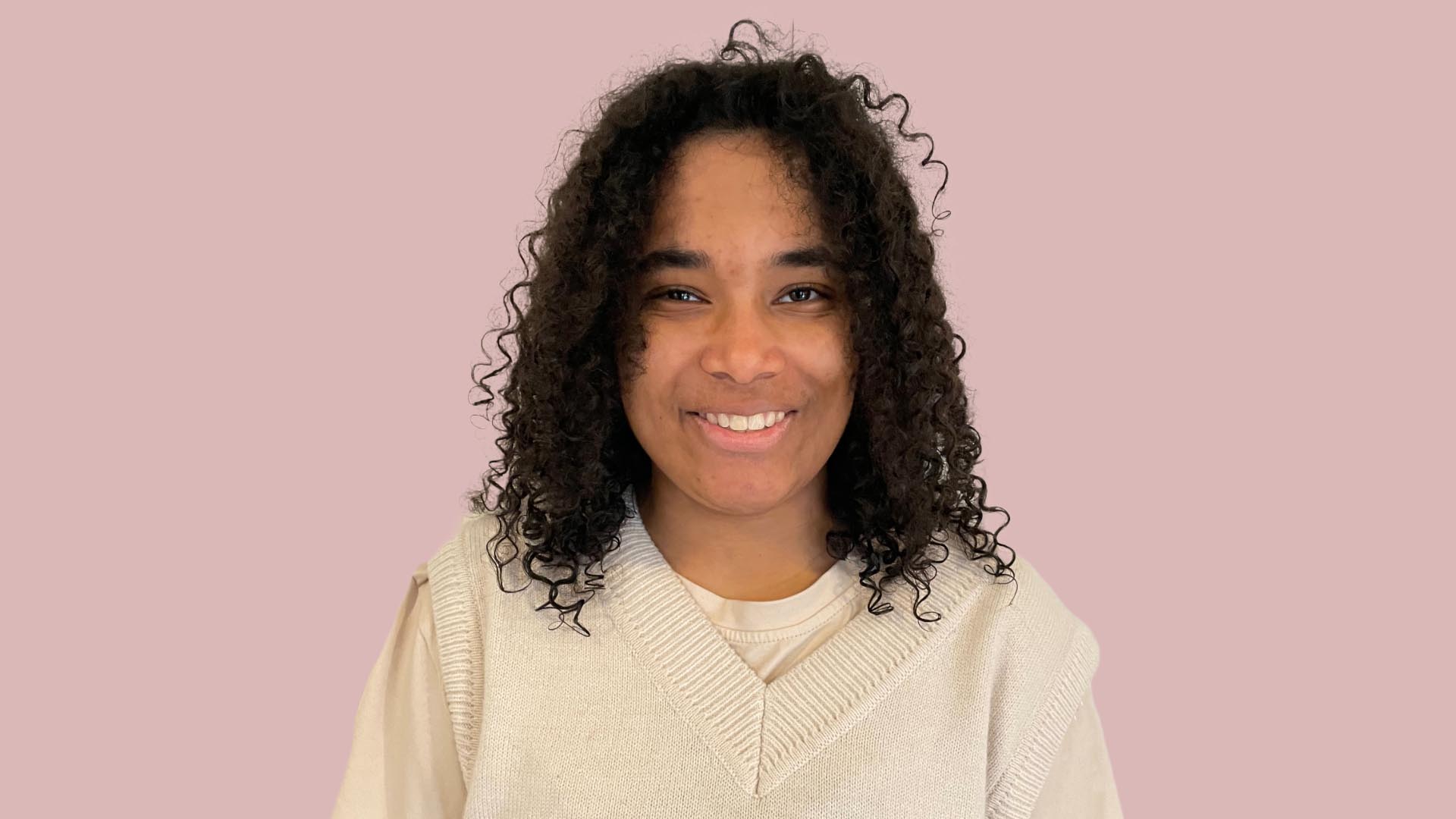Deciphering History, Unearthing Hard Truths
December 17, 2024

Sophomore history major Lulu Long's internship with the Slavery, Law, and Power project focuses on uncovering stories that shape our understanding of history.
By Jessica Weiss ’05
The faded ink, cramped cursive and cryptic shorthand could test anyone’s patience. Deciphering the 17th-century draft of the Fundamental Constitutions of Carolina was no small feat, with its tangle of scripts from many secretaries and proprietors—including that of John Locke, the philosopher and Enlightenment thinker.
“Their handwriting was horrendous,” said Lourdes Long, better known as Lulu, a sophomore history major at the University of Maryland.
For Long, it’s just part of the job. As an intern with UMD’s Slavery, Law, and Power Project (SLP), she spends countless hours transcribing centuries-old documents, uncovering stories that shape our understanding of early America. It can be painstaking work, “but it’s really rewarding,” she said.
A lifelong lover of history, Long’s passion began in earnest at age seven when she stumbled across a documentary about the Achaemenid Empire her mother had saved on YouTube. “I’ve been a history nerd ever since,” she said. “I love studying humanity—how we’ve changed and how we’ve stayed the same.”
That childhood fascination led her to the history department at UMD, where her academic journey was shaped early on by teachers like Associate Professor of History Holly Brewer, a specialist in early American history and the early British empire.
While taking Brewer’s “Interpreting American History: Beginnings to 1877” course, Long built a strong rapport with the professor, frequently attending office hours to discuss material and even borrowing a biography on Frederick Douglass. When Brewer mentioned an internship might be available with SLP, Long was thrilled.
The academic initiative, led by Brewer and supported by grants from the U.S. National Archives (National Historic Publication & Records Commission), the American Society for Legal History and the University of Maryland, serves as a comprehensive database of primary documents aimed at helping researchers uncover and analyze the deep connections between slavery and power struggles in early America. SLP provides access to materials that trace these issues back to the British Empire. The project’s extensive collection includes court records, legal codes and colonial charters.
Brewer said she offered Long the position because she was so impressed by her curiosity, and especially by her interest in questions surrounding the development of slavery. Long is one of several undergraduates to serve as interns on the project over the past few years.
“It’s just great to see such enthusiasm, and I knew that she would learn crucial skills and that it could open doors for her in the future,” Brewer said. “It’s been great to have her on the team and contributing her insights.”
Two other team members, Dylan Bails and Michae Becker, first taught Long how to decipher the writing and shorthand of the time. Recently, she worked on a document detailing inheritance laws, which dictated how property—including enslaved people—was passed down through generations in colonial Carolina. These laws prioritized white male heirs and reduced enslaved individuals to commodities that could be divided, sold or given away. “It’s fascinating to see how these systems of power were constructed,” Long said. “The content can be brutal, but confronting these realities is essential.”
Despite the challenges, Long enjoys connecting the dots between her internship and her studies. “It’s incredible to see how these primary sources contextualize what I’m learning in class,” she said.
Looking ahead, she is planning a history honors thesis on the inclusivity—or lack thereof—of labor unions during the Gilded Age and Progressive Era. Down the line, she hopes to pursue a career in archiving or museum work at the Library of Congress or the Smithsonian, and aims to receive a master’s in either history and library science or archival studies at UMD.
For her, history is more than a record of the past—it’s a guide for the future. “The humanities are so important,” she said. “They help us understand why we are the way we are as a society. If we can look back at our mistakes, we have a chance of preventing them.”

